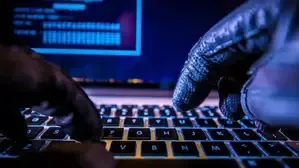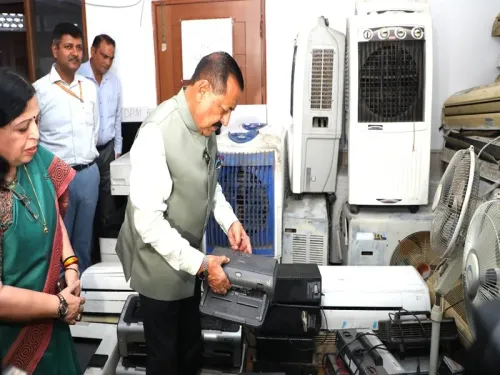Laos to Fortify Telecom Regulations for Improved Cybersecurity

Synopsis
Key Takeaways
- Laos implements strict telecom regulations.
- Connections to foreign networks require authorization.
- New committee established for oversight and compliance.
- Electricity supply reduced to combat fraud in Myanmar.
- Cybersecurity measures are increasingly challenging today.
Vientiane, Feb 14 (NationPress) The Ministry of Technology and Communications in Laos has implemented stringent regulations concerning the use of telecommunication and internet services throughout the nation, with the intention of ensuring secure and efficient operations while safeguarding against fraud.
Both individuals and legal entities, along with telecommunications and internet service providers, are strictly forbidden from connecting Laos' telecommunication and internet systems to foreign networks without prior approval from the Lao Ministry of Technology and Communications, as reported by the Xinhua news agency citing the Laos National Radio on Friday.
This initiative is designed to combat fraudulent activities, including scams conducted by criminal organizations and call-centre fraud.
The ministry has also formed a committee tasked with overseeing telecommunications and internet connections and ensuring adherence to national regulations. This body will be responsible for monitoring and enforcing rules to maintain secure and reliable digital communications within Laos.
The notice issued on Wednesday reiterates the Lao government's dedication to promoting safe and efficient use of telecommunications and internet services, thereby supporting the nation’s digital transformation objectives.
Efforts by the government to tackle cyber fraud extend beyond just telecommunications regulation. Recently, Electricite du Laos (EDL) reduced electricity supply to the Tachileik district in Myanmar's Shan State, an area known for its involvement in call-centre scams.
This action mirrors a similar initiative by Thailand, which cut power supply to disrupt criminal activities in the region. EDL confirmed that the electricity restrictions are aimed at preventing misuse by illegal entities while minimizing the effect on local residents.
The state enterprise highlighted that the Lao government does not provide power to unlawful groups, ensuring that energy exports are focused on supporting public infrastructure, businesses, and essential services.
Cybersecurity involves safeguarding systems, networks, and programs from digital attacks. Such cyberattacks typically aim to access, alter, or destroy sensitive information; extort money from users via ransomware; or interrupt regular business operations.
Today, implementing effective cybersecurity measures is particularly difficult due to the prevalence of devices exceeding the number of people and the increasing ingenuity of attackers.









